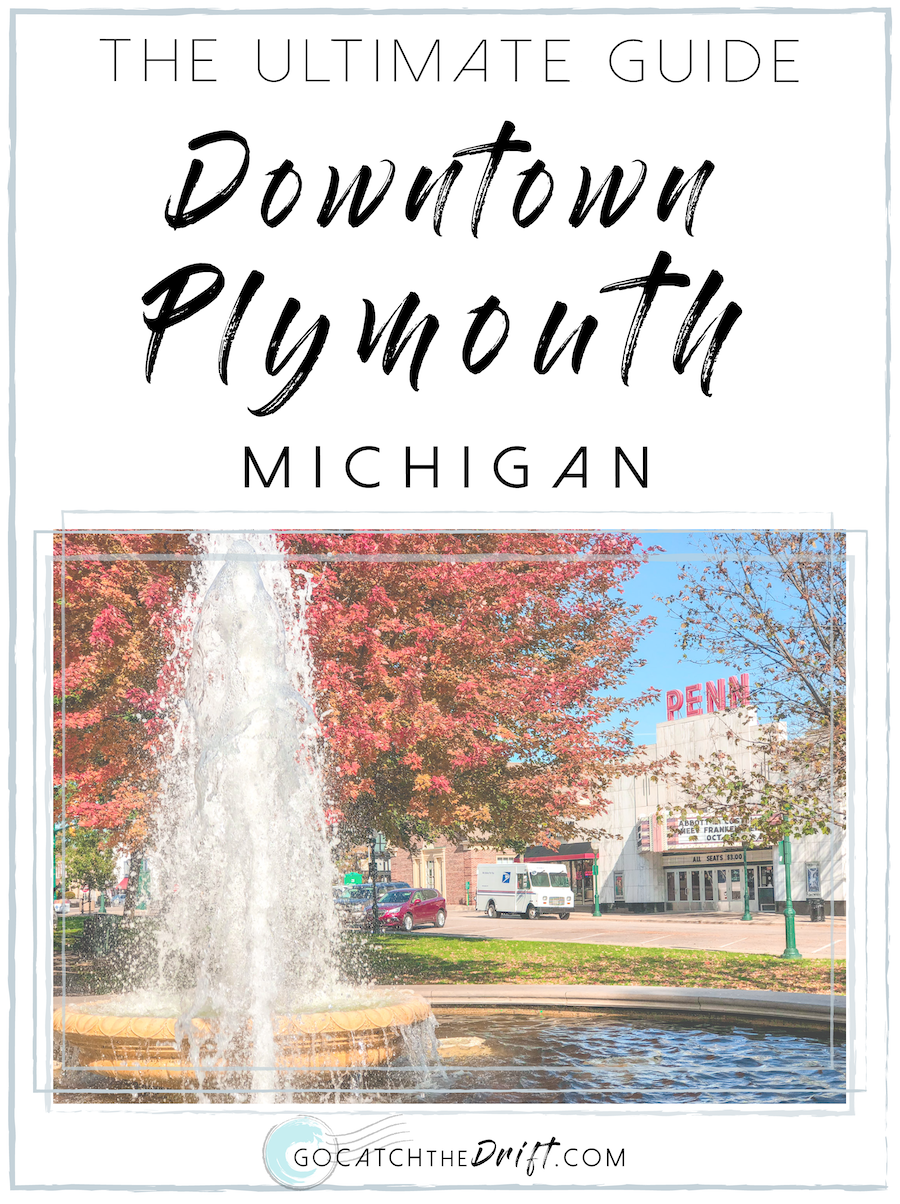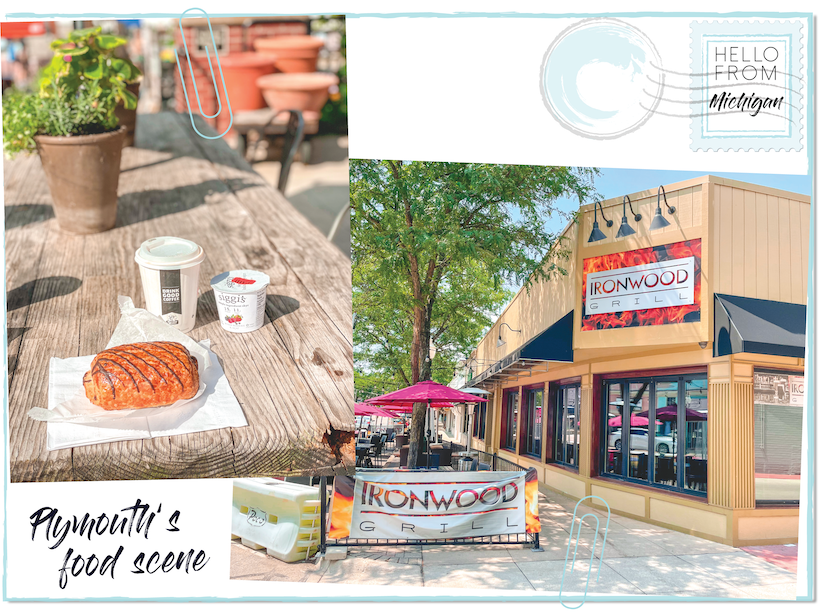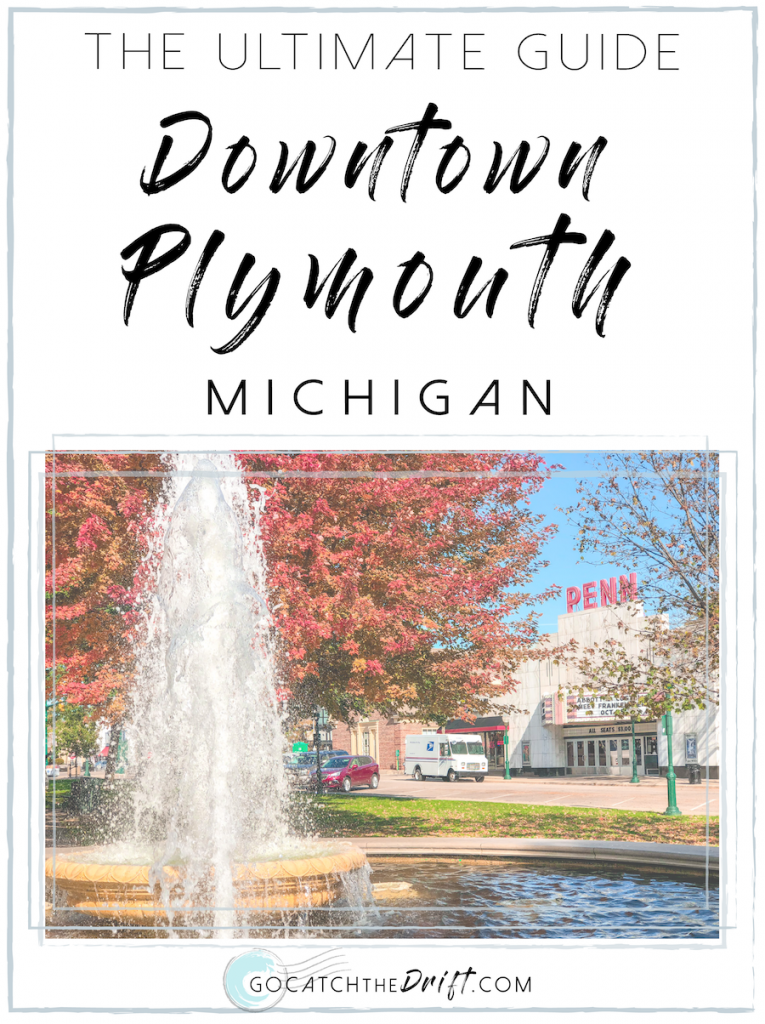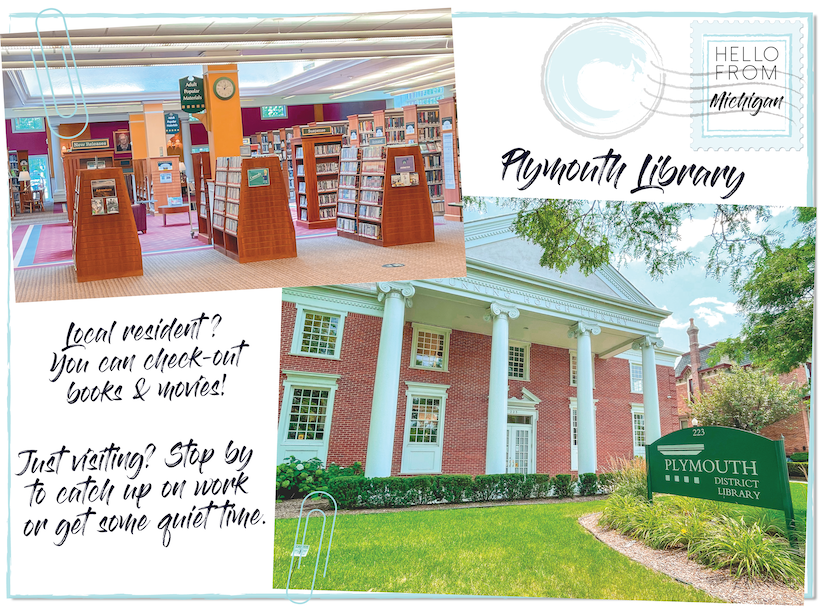Located just ten miles west of Detroit, Plymouth, Michigan, offers a perfect blend of small-town charm with convenient urban accessibility. If you’re considering a move or just curious about what makes this community special, Plymouth has a remarkable array of features that consistently attract new residents and visitors alike. From its lively downtown area to its rich historical roots, Plymouth combines the best aspects of suburban living with a strong sense of community identity. Let’s explore what makes this town a standout destination in Michigan’s metro Detroit area.
The Charm and Appeal of Plymouth: Highlighting the lively downtown area, picturesque Kellogg Park, beautiful neighborhoods, and the overall community atmosphere that makes Plymouth a desirable place to live

- A visitor’s perspective on the charm and vibrancy of downtown Plymouth. Source: gocatchthedrift.com
Plymouth’s downtown area serves as the center of this community, centered around the picturesque Kellogg Park with its iconic fountain. This gathering space hosts countless community events throughout the year, creating a natural social hub where residents regularly meet, mingle, and build relationships. The streets surrounding the park are lined with a diverse collection of locally-owned shops, restaurants, and cafes, all housed in well-preserved historic buildings that give downtown Plymouth its distinctive character. Whether you’re enjoying a summer concert in the park or simply sitting by the fountain watching the world go by, the downtown area provides that quintessential small-town experience that’s increasingly hard to find.
Beyond the downtown core, Plymouth’s residential neighborhoods showcase tree-lined streets with sidewalks perfect for evening strolls and children’s bike rides. The community takes obvious pride in its appearance, with well-maintained homes ranging from historic properties to modern developments, all contributing to the town’s appealing aesthetic. What truly sets Plymouth apart, however, is the genuine sense of community that permeates everyday life. Neighbors know each other by name, local businesses recognize their regular customers, and there’s a palpable feeling of belonging that residents consistently mention when describing why they love living here. This combination of physical charm and community connection makes Plymouth not just a place to live, but a place to truly call home.

- Explore the culinary variety that downtown Plymouth has to offer. Source: gocatchthedrift.com
Community Amenities and Activities: Covering the farmers market, seasonal events (Ice Festival, Fall Festival, Art Fair), dining options, shopping opportunities, and recreational facilities that enhance quality of life
Plymouth’s calendar brims with events that bring the community together throughout the year. The Plymouth Farmers Market operates every Saturday from May through October, offering fresh local produce, artisanal foods, and handcrafted items in a festive atmosphere. The town’s signature seasonal celebrations have become regional attractions—the Plymouth Ice Festival in January transforms Kellogg Park into a display of ice sculptures, while the Fall Festival in September features carnival rides, live entertainment, and the famous Rotary Club chicken barbecue that has been a tradition for decades. Additionally, the Plymouth Art Fair has grown to become Michigan’s second-largest art festival, drawing talented artists and thousands of visitors each July who stroll the downtown streets admiring and purchasing unique creations.

- Strategically located, downtown Plymouth offers the perfect blend of accessibility and small-town charm. Source: Kylie – gocatchthedrift.com
The dining scene in Plymouth excels for a town of its size, with options ranging from casual eateries to upscale restaurants. Local favorites include Ironwood Grill for comfort food in a sports bar setting, Barrio Cocina y Taquileria for authentic Mexican cuisine, and The Post Local Bistro for evening drinks and socializing. For dessert enthusiasts, Plymouth offers multiple options, including Kilwins Chocolate Shop and several ice cream parlors. Shopping opportunities abound, with boutiques like Bella Mia offering fashion, Sideways and Bohemian Home showcasing unique gifts, and Westborn Market providing grocery essentials in the historic former post office building. These amenities, combined with excellent recreational facilities including numerous parks and playgrounds throughout the city, create a quality of life that residents cherish and visitors envy.
Location and Accessibility: Explaining Plymouth’s convenient location near Detroit and Ann Arbor, transportation options, and how its position makes it ideal for commuters while maintaining a small-town feel

- The Plymouth District Library – a cornerstone of both history and modern community life in Plymouth. Source: gocatchthedrift.com
Plymouth’s strategic location, approximately 30 minutes west of Detroit and 20 minutes east of Ann Arbor, positions it perfectly for commuters who work in either urban center. This prime position along the I-275 and M-14 corridors provides convenient access to major employment hubs while allowing residents to return home to a peaceful community atmosphere each evening. The Detroit Metropolitan Airport is just a 20-minute drive away, making travel connections exceptionally convenient for both business and leisure trips. Despite this accessibility to major infrastructure, Plymouth maintains its distinct small-town identity, serving as a unique space for community-centered living within the larger metropolitan region.
While public transportation options are limited compared to larger cities, Plymouth’s walkable downtown and residential neighborhoods make getting around town on foot a pleasant experience. Many residents appreciate being able to park their car on Friday evening and walk to restaurants, shops, and entertainment venues throughout the weekend. For those who do commute, the relatively short drive times to surrounding business centers in Livonia, Novi, and Northville add to Plymouth’s appeal. This balance of accessibility and separation is precisely what draws many professionals to the area—the ability to participate in the economic opportunities of a major metropolitan region while enjoying the quality of life benefits that come with residing in a close-knit community.
Historical Significance and Community Pride: Discussing Plymouth’s rich history dating back to 1825, its historical landmarks, and how the city maintains its heritage while embracing modern development
Plymouth’s history dates back to 1825, when the first settlers arrived. The community was officially incorporated in 1867 and achieved city status in 1932. The town’s name reflects its connection to Plymouth, Massachusetts, from where some of the original settlers originated. This rich historical background is preserved in landmarks throughout the city, most notably in the architectural details of the downtown district. John Kellogg’s contribution to the community is commemorated in Kellogg Park, named after the early settler who built the Plymouth House on the corner of Ann Arbor Trail and Main Street in 1832. Today, this heritage is carefully preserved through thoughtful preservation efforts and historical education programs that ensure new generations understand and appreciate Plymouth’s origins.
What makes Plymouth particularly special is how it balances respect for its historical character with forward-thinking development. The Downtown Development Authority works diligently to maintain the architectural integrity of the downtown area while accommodating modern businesses and amenities. Historical buildings have been thoughtfully repurposed—like the former post office that now houses Westborn Market—preserving their character while adapting to contemporary needs. This commitment to honoring the past while embracing the future creates a distinctive community identity that residents take immense pride in. The result is a town that feels both timeless and lively, where historical roots provide a strong foundation for a community that continues to grow and thrive in the 21st century.

